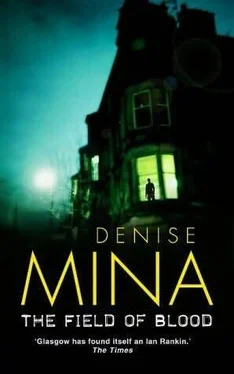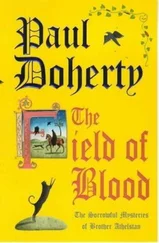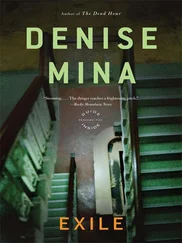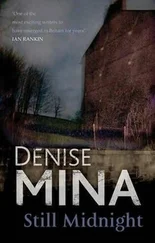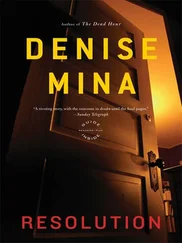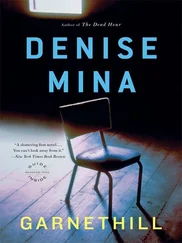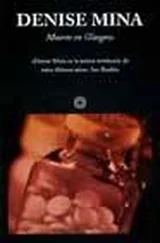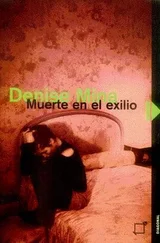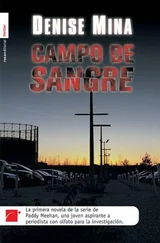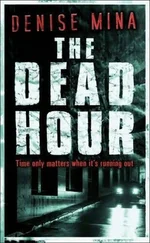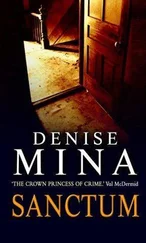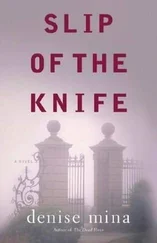Denise Mina - Field of Blood
Здесь есть возможность читать онлайн «Denise Mina - Field of Blood» весь текст электронной книги совершенно бесплатно (целиком полную версию без сокращений). В некоторых случаях можно слушать аудио, скачать через торрент в формате fb2 и присутствует краткое содержание. Жанр: Триллер, на английском языке. Описание произведения, (предисловие) а так же отзывы посетителей доступны на портале библиотеки ЛибКат.
- Название:Field of Blood
- Автор:
- Жанр:
- Год:неизвестен
- ISBN:нет данных
- Рейтинг книги:3 / 5. Голосов: 1
-
Избранное:Добавить в избранное
- Отзывы:
-
Ваша оценка:
- 60
- 1
- 2
- 3
- 4
- 5
Field of Blood: краткое содержание, описание и аннотация
Предлагаем к чтению аннотацию, описание, краткое содержание или предисловие (зависит от того, что написал сам автор книги «Field of Blood»). Если вы не нашли необходимую информацию о книге — напишите в комментариях, мы постараемся отыскать её.
Field of Blood — читать онлайн бесплатно полную книгу (весь текст) целиком
Ниже представлен текст книги, разбитый по страницам. Система сохранения места последней прочитанной страницы, позволяет с удобством читать онлайн бесплатно книгу «Field of Blood», без необходимости каждый раз заново искать на чём Вы остановились. Поставьте закладку, и сможете в любой момент перейти на страницу, на которой закончили чтение.
Интервал:
Закладка:
She tried to think of a plausible lie that wouldn’t make her mum forbid her from going to work. She’d been mugged. No, that suggested danger in the town. There was a fight on the train- everyone took trains. A fight on the train, and she, cautious and careful, got up to get off and was hit on the head by a stray bottle. The train staff took her to hospital, but she was fine. The fighting men were arrested. One of them was fat. That sort of detail made it plausible. He had a Rangers football top on. They’d want to believe that.
The cold night nibbled at her face. Paddy saw a jagged frost forming on the leaves of the hedge. Custard-cream crumbs taking refuge in the seams of her pocket had worked their way under her fingernails. She felt Pete’s hands in hers again and promised herself that she’d never forget him or what he had done for her.
It was getting late. She dawdled reluctantly through the garden gate and stopped by the pile of bricks. She knelt down, her fingers feeling the mulchy ground for the key to the Beatties’ garage.
She’d have a smoke with the Queen and remember her friend Pete for a while before she went in.
AUTHOR’S NOTE
The Patrick “Paddy” Meehan portions of this novel are drawn from a real case. Paddy Meehan was a career safecracker who was found guilty of the high-profile murder of an elderly woman during a housebreaking. The case was a notorious miscarriage of justice in Scotland. Even after the real culprits had sold their story to a Sunday newspaper, it took a book by Ludovic Kennedy to prompt the reopening of the case and the royal pardon. The story told here is based largely on Meehan’s accounts in interviews and books and on those of his solicitor, Joseph Beltrami. Some facts have been conflated to make them read more clearly- for example, Griffiths hijacked a number of cars during his shooting spree. Only the emotional content is substantially fictionalized.
In the late eighties I interviewed Paddy Meehan. Neither of us wanted to be there. We were both trying to please my mum, Edith.
During a summer in the late eighties Edith was working as a manicurist in the Argyle Market, a ramshackle series of booths in a first-floor corridor off a main shopping thoroughfare in central Glasgow. At the same time, Paddy Meehan was selling his vanity-published book, Framed by MI5, at the bottom of the stairs that led up to the market. Edith’s nail booth was very classy: she wore a white uniform, had a desk and a sofa, and even had a working telephone installed. Meehan approached her and asked if he could receive important calls there because the Secret Service had bugged the public pay phone. Being a lady, she graciously agreed, but asked if he would return the favor by telling his story to her daughter. She would be interested, Edith said, because she was a law student. I actually wasn’t interested, I didn’t know anything about him or the case, and I had exams coming up, but my mum said I had to buy him a cup of tea.
The market canteen was deserted in the half hour before closing time. We were the only customers, and Meehan sat facing the door, watching over my shoulder. I was young and arrogant and in a hurry, and I only half listened to his story. He had told it so often that at times I think even he wasn’t listening, but he told it well and still got angry when he remembered prison and being mobbed in Ayr.
Afterwards I asked him to go over part of it again. He said he had been recruited into the communist underworld network by a shadowy figure named Hector who had first appeared when he worked in the shipyards. He bumped into him unexpectedly in London outside the embassy and now thought he was an agent provocateur from MI5, the UK Security Service. Although it appeared from his prison records that he had remained in Leicester Prison for a five-stretch, he actually escaped and ran away to the USSR. There he gave the Soviets information about prison layouts which they used to spring George Blake, a former officer for the Secret Intelligence Service (MI6) who had been caught spying for the Soviets. More incendiary than that, he claimed that he had warned MI5 about the method Blake used to escape. Either they failed to heed his warnings, he said, or they deliberately let Blake get away.
It sounded ridiculous to me. I told him I didn’t believe that MI5 would try to ensure his silence by framing him for a high-profile murder. He insisted, became agitated and flushed, and at one point almost tearful. I suddenly saw myself, an arrogant law student sitting in a dirty café correcting a red-faced old bloke about the narrative arc of his life.
Meehan insisted that his life made sense. He wasn’t prepared to accept that his life, like most eventful lives, was nothing but a series of comic mishaps and tragedies strung together in a meaningless pattern. Someone knew what was going on and had directed it all. In looking for a shadowy instigator, it seemed as though he was insisting that God existed.
We finished our tea and cigarettes and parted on a sour note. He blanked me for the rest of the summer. Every time I passed him at the foot of the stairs on my way up to visit my mum, he’d busy himself tidying the piles of books or look into the distance with narrowed eyes, pretending to spot an imaginary friend. I always said hello just to let him snub me.
As I’ve grown older I’ve come to realize that nothing silences an awkward truth more effectively than ridicule. His story was implausible enough to be true.
Meehan kept on telling his story. He told it to anyone he met.
He died of throat cancer in 1994.
ACKNOWLEDGMENTS
This book just couldn’t have happened without the efforts and insights of Selina Walker, and I cannot thank her enough for her patience and sharp eye. Katrina Whone, Rachel Calder, and Reagan Arthur also gave me great direction nearer the end.
Many people have helped with my research. Thanks and lunches are due to Stephen McGinty, Linda Watson-Brown, and Val McDermid, who gave me invaluable insights into the workings of a busy newsroom in the early eighties. Also to Kester Aspden for materials kindly given for no return.
Inspiration for the story was provided by the brilliant Dr. Clare McDermid’s work into the social construction of child offenders, most of which had to be cut out but will doubtless appear in another project at a later date.
Thanks also to Gerry Considine, who did his usual and gave me legal advice. Or did he this time? I can’t remember. Maybe it was Philip Considine or John Considine who gave me legal advice. If so, it’ll all be wrong because they’re not lawyers. Maybe it was Auntie Betty Considine. Is there a new European convention concerning wee cups of tea and fruit loaf?
Most of all, my undying gratitude to Steve, Monica, and Edith for their support during the scariest of wonderful times.
Denise Mina


Интервал:
Закладка:
Похожие книги на «Field of Blood»
Представляем Вашему вниманию похожие книги на «Field of Blood» списком для выбора. Мы отобрали схожую по названию и смыслу литературу в надежде предоставить читателям больше вариантов отыскать новые, интересные, ещё непрочитанные произведения.
Обсуждение, отзывы о книге «Field of Blood» и просто собственные мнения читателей. Оставьте ваши комментарии, напишите, что Вы думаете о произведении, его смысле или главных героях. Укажите что конкретно понравилось, а что нет, и почему Вы так считаете.
